COP29 outcomes bear consequences for Bangladeshi children

With the focus on climate finance, COP29 concluded on November 24 in Baku, Azerbaijan, with a $300 billion annual pledge by developed nations until 2035. The amount will go to support developing nations such as Bangladesh in adapting to the climate emergency. While a step in the right direction, the outcome fell short, paling in comparison to the actual needs. Bangladesh alone requires $176 billion to implement its climate action plan to meet the Paris Agreement goals—known as the Nationally Determined Contribution (NDC). What's more, COP29 failed to clarify where these funds will come from, and the annual Global Stocktake dialogue—meant to assess the collective progress to inform the next round of NDC—was postponed until June 2025. This delay is especially concerning, given the critical role the NDCs play in driving climate progress when international mitigation negotiations are failing to reach consensus.
For children in Bangladesh, the most exposed in the world to climate and environmental hazards, these outcomes signal a dire "code red" for both their present and their future. Every year, extreme weather events—floods, heatwaves, and cyclones—continue to offer no respite. This year has been particularly unprecedented and devastating. During monsoon season, the worst floods in 34 years swept through the homes, schools, and villages of over 20 lakh children in eastern Bangladesh. These tragedies came on the heels of earlier disasters, including June floods in northern Bangladesh and Cyclone Remal in May—the three combined emergencies affected over 1.8 crore people, including 70 lakh children. Flooding, along with increasingly severe storms, has a direct impact on children: it increases stunting; drives pre-term pregnancy complications; and results in increased maternal and newborn mortality. This is not just a science reality. It is killing women and children, and this alone should be the justification for action.
Meanwhile, children are growing up in an increasingly unhealthy environment that is taking a heavy toll on their health and development. Emissions are a driving factor for the climate crisis, but also a damaging factor for children´s health. In 2021 alone, air pollution was responsible for over 235,000 deaths in Bangladesh. Higher temperatures is another harmful outcome of the climate crisis. Heatwaves, which are becoming more frequent and intense, reached record-breaking temperatures of 43 degrees Celsius in April and May. These extreme temperatures forced nationwide school closures and worsened the learning loss, especially for most vulnerable children, who have no access to digital means of education.
But this crisis is not just about rising temperatures or polluted air and water—it is about injustice. Children in Bangladesh are paying the highest price for a crisis they did not cause. Developed countries are responsible for the bulk of global emissions, yet it is countries on "ground zero" like Bangladesh that face the worst consequences.
These disparities become even more glaring as the 2030 deadline looms just five years away. While countries largely postured and avoided the urgency of the 1.5 degrees Celsius target and Sustainable Development Goal 13 for Climate Action at COP29, children in Bangladesh cannot afford to wait another year. Stronger actions are desperately needed to protect their rights, lives, and futures. Climate finance must be accessible, transparent, and sufficient. We need infrastructure—schools, hospitals, and water systems—that can withstand climate shocks. Stricter environmental laws must be enforced to control pollution. Most importantly, as young people in Bangladesh continue to speak up on the devastating impacts of climate change, their voices must be central in decision-making; they want and should be a part of driving the solutions. To do this, UNICEF joins their call for i) a youth climate envoy in the office of the chief adviser and ii) a climate youth advisory body to be officially consulted on inclusion of children and young people in the NDCs, and to support the Ministry of Environment, Forest and Climate Change to create a dynamic plan of action.
For children and young people, inaction is not an option. There are many demands at this time, but this is not a focus and investment that can be addressed at a later date—it has to start now, or it will be too late. Echoing the statement from UNICEF Executive Director Catherine Russell at the conclusion of COP29, UNICEF is working with the Interim Government of Bangladesh, partners and the private sector to ensure tangible climate actions for children. Looking ahead, we, along with young people demanding change, urge the interim government to embed and prioritise children's rights in the country's next round of NDC.
To avert catastrophe, we must act now—with children's rights at the heart of every decision. The future is theirs, and it's time we give them the tools to secure it.
Rana Flowers is UNICEF representative in Bangladesh.
Farzana Faruk Jhumu is a UNICEF youth advocate and climate activist.
Amanullah Porag is a young climate activist.

 For all latest news, follow The Daily Star's Google News channel.
For all latest news, follow The Daily Star's Google News channel. 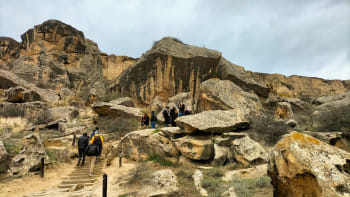
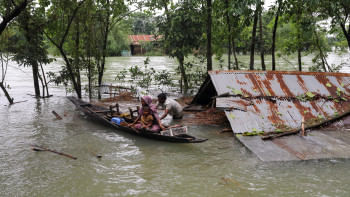


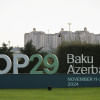

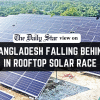
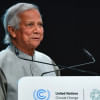



Comments